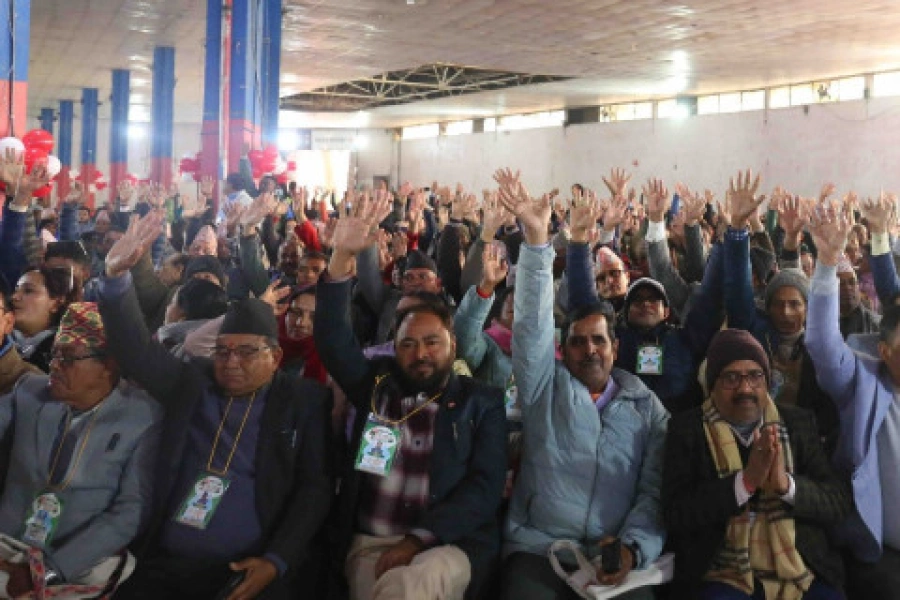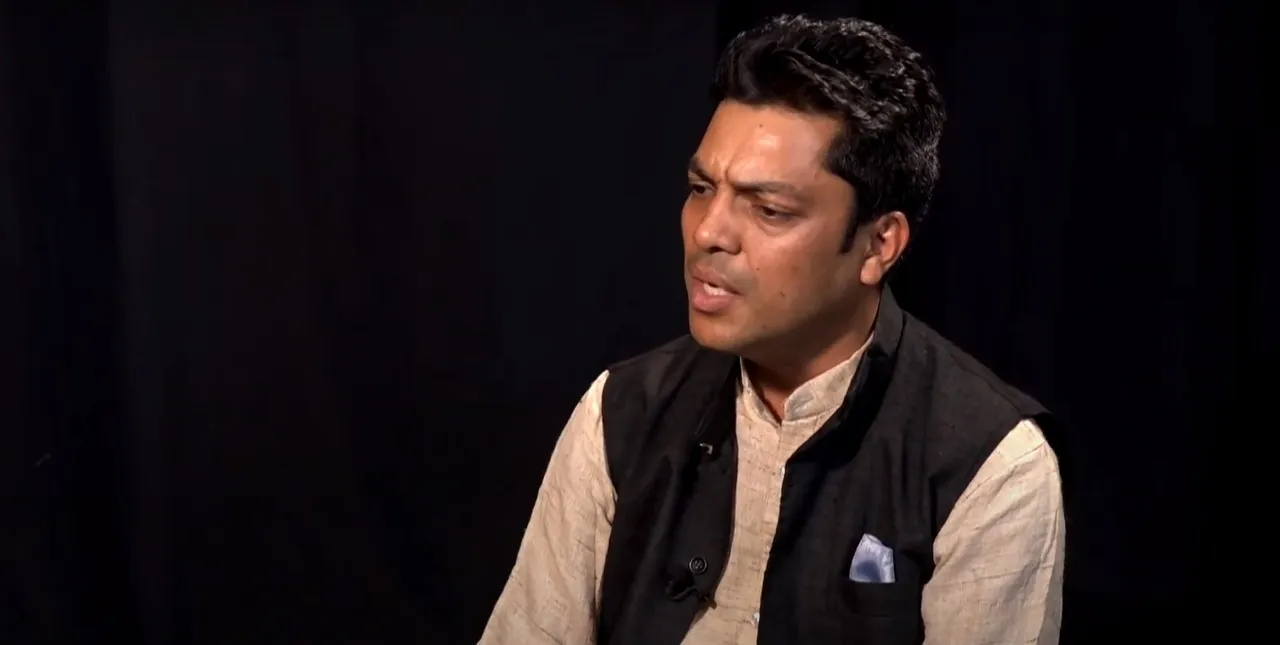Lisa Honan is the head the UK's Foreign and Commonwealth Development Office (FDCO) Nepal, which earlier went with the name of DFID. On the occasion of International Women’s Day Republica spoke to her on a number of women’s issues, with focus on importance of data, technology and science for women, in Nepal. Excerpts:
Nepal’s Constitution has some great provisions to advance women’s rights, particularly to support the significant increase in women’s representation and participation in all spheres of government.
As technology advances in Nepal, there is a risk of leaving women behind if they are not actively brought into work in data, technology and science.
There are numerous opportunities for elected men and women leaders to partner with civil society, universities, and private sector to develop programs that enhance and promote women in STEM.
To begin with, UK aid often goes with the name of DFID. What does the name change into FCDO signify?
I can understand that the public might get confused. As an organization, I previously worked for DFID. Then last July, the UK Prime Minister decided to put the UK’s development and diplomatic expertise together and form FCDO—the Foreign and Commonwealth Development Office. The new department started on September 2, 2020. UK Aid is our brand. If you see a UK Aid sign it means that the program is financed by the UK.
How do you evaluate the UK aid to Nepal’s development over the years?
Over the years, the UK has supported the Government of Nepal’s own development priorities. Let me give you just a few examples. We have been proud to support the government to encourage pregnant mothers to get checked regularly and to come to the hospital to give birth by providing finance for travel. The 1138 kms of roads built and 2200 kms maintained by the Rural Access Program have helped connect the most rural and remote parts of the country to Nepal’s growing road network, using bioengineering to ensure these roads are resilient against natural disasters. The 21 million job days this program provided over a two-decade partnership with the government of Nepal paid equal wages to women and men.
Our access to finance program launched innovative financial products for farmers, women, and young people, including the use of technology to close the physical distance. After the 2015 earthquake, we provided funding for branchless banking services which helped rural families open their first bank accounts and get money from the state deposited straight to their bank accounts.
With time, Nepal’s needs have changed, as has the support we are providing. Nepal adopted federalism so our governance program now works to support its stabilization and effectiveness. The impacts of climate change are more pronounced now than ever before. The UK is investing over NPR 750 crores (£52.5million) to support Nepal’s local governments to support adaptation to climate change. Resilient infrastructure is a pillar of the green recovery that Nepal is aiming for from the COVID19 pandemic so this another area we are focusing on with the retrofitting of regional hospitals in Bhaktapur and Pokhara will cater to millions. I could go on…
Great Leadership: A Road Less Traveled

Where do you see the issues of women empowerment, rights, and inclusion especially after the promulgation of the constitution in Nepal in 2015? How is the UK working to help Nepal on these issues?
The Constitution has some great provisions to advance women’s rights in Nepal, particularly to support the significant increase in women’s representation and participation in all spheres of government. We saw some of the benefits of that in the previous federal, provincial, and local level elections. I also welcome the provisions that recognize equal rights to lineage and succession of ancestral property, and the right to be protected against all forms of violence.
But the constitutional provisions on citizenship are still unequal for women on some really important areas. When women tell me that Nepali men married to foreign nationals who are women can have children who are Nepali by descent, but the children of Nepali women married to foreign men can only get naturalized citizenship, I don’t really understand why. But I am an outsider and I understand this is a sensitive issue and it’s one that the people of Nepal should work through. And we mustn’t forget the inevitable challenges around implementation. However good the laws are in any country, including Nepal, their impact relies on both enforcements to tackle wrongdoing, and any cultural norms that permit it.
All UK funded programs have a cross-cutting gender component which ensures that our funds are being used in a way that supports equitable development. The Nepali women I have met convince me that they are more than capable enough to take charge of the issues that affect their lives. However, for this to be possible, we need to make sure there are enough women in leadership roles so that decision-making is fair and equitable. The UK supports women’s leadership in all sectors, whether it’s by creating jobs for women, enabling women to lead on climate change-related issue or empowering them to make decisions about family planning. In my own experience I started my career at the very bottom of the organization. It is possible to get into a senior leadership position if there is an environment which enables it. I have pushed the boundaries so that other women who come after me don’t have to.
Why do you think data, technology and science are important for women in Nepal?
Nepal is in the midst of a massive transition. Women occupy a higher proportion of elected seats at all tiers of the government. Women in these leadership positions, like their male counterparts, are now required to use and analyze data to make important decisions, including budget and policy choices in a new context. Unfortunately, women in leadership positions get questioned more often, and often need to prove their decisions, rationale and meet higher expectations. So, their decisions on budgets and policies require additional justification. Data and technology can support women in these roles to inform policy decisions that ultimately impact female and male constituents.
Women face multiple forms of discrimination and the participation of women in various spheres of life is still low due to societal norms.As technology advances in Nepal, there is a risk of leaving women behind if they are not actively brought into work in data, technology and science.
Women have a voice in the fields of data, technology and science that offer new interpretations, and different perspectives than the voices we traditionally hear from in these sectors. In Nepal, there is a rapid growth in data and technology, and women must be a part of it.
The future will be shaped by type of technology introduced during the time, use of innovations that improve human lives, and use of data/evidences for policy formulation and decisions that impacts our lives. With the current gender disparity of women’s participation in the sector it is imperative to increase the more involvement for the equitable future.

What challenges do you think women face in the field of data, technology and science?
Data, technology and science are fields dominated by men. Even if there are women, most are in the supportive roles. So, only a handful of female figures are in this field as the role models to look up to. At each step along their careers in these fields, women often find themselves as the only female in the room, be it the classroom, or the office, and they have to work harder to make their voices heard. Gender roles, gender bias, and stereotypes influence a woman’s decision to continue in the field of data, science and technology. Due to this, they have not been able to continue their career path.
Women represent only 26 percent of people working in STEM. What opportunities do you see to increase women’s leadership in STEM?
A number of women in STEM have shown the barriers to women’s leadership are not impenetrable. With more participation in the field and more leaders in these areas to serve as role models for the next generation of women in STEM, we will see opportunities for women improve. It is important to invest in women in STEM from a young age. Encouraging women to stay in STEM throughout university is one important opportunity to create new leaders. We can also invest in women to strengthen their leadership, professional and technical skills to be able to take part in these sectors with full confidence and to subsequently empower other young women.
In Nepal, there is an active group of data and tech savvy organizations in civil society, like Women in STEM, Women Leaders in Technology, and Girls in Tech, among others. In addition, there are a number of private sector companies that are led by women working in technology, such as Moonlit Solutions, Smart Cheli, Sochware, Log point, and Kimbu Tech. These along with other women-led organizations,have opportunities to organize regular events, establish women groups and organize trainings in leadership development, data and digital literacy, networking, career events (such as job markets, ted-talks etc) to create opportunities for women’s leadership in this growing field.
Finally, with relatively new local governments looking to create economic growth opportunities, there are numerous opportunities for elected men and women leaders to partner with civil society, universities, and private sector to develop programs that enhance and promote women in STEM.
Women are disproportionately affected due to the pandemic. How do you think the women’s leadership in STEM fields could contribute to solving the issue?
Women were disproportionately affected by COVID-19 in Nepal. As a result, women face a greater risk of losing jobs, losing income, gender-based violence, and are also shouldering much of the burden at home. In addition, women make up a majority of the health care workforce. So they are in higher risk of infection.
The crisis showed how important work in STEM is in a pandemic. Local governments needed accurate data and appropriate technology to manage the crisis. Because women are disproportionately affected by the pandemic, their voice must be part of the solution. They have a different experience that may shape the response and recovery in Nepal. Thus, it is crucial to get more women in the field of STEM to drive inclusive decision-making, inclusive relief programs and inclusive long-term recovery.
Gaps in gender-focused data make it difficult to monitor women's empowerment in various fields such as health, education, economic growth, political participation, and security. Where do you think donors can invest to fill these gaps?
There is a global consensus that tackling gender inequality, including through Sustainable Development Goal (SDG) 5, is a crucial step in the improvement of overall development outcomes. Reaching and measuring progress towards SDG 5 will require more transparent, usable and robust gender data. Thus, it is important to dedicate donor investment towards gender focused activities and ensuring systems capture gender disaggregated data and women’s voices. This means strengthening the data ecosystem in the country that include strengthening government statistical system, administrative data systems to increase supply and as well as use of gender data.
Donors have a convening authority. They can support programs that bring women from all spheres together to exchange experiences, network and enhance their leadership and technical skills. In these forums, donors can support a common agenda toward filling gender data gaps, strengthening women’s roles and leadership, and facilitating processes that support gender disaggregated data.
It’s often difficult for girls and women in their classes or workplace in the fields of technology and data. What would you recommend to young women who are interested in entering the STEM field?
Being in a group is power. Information is power. Connectivity is power. It is, of course, difficult to be the first in any field and STEM is one such field. But history is created by those who challenge the status quo. History recognizes only those who come from minority, who struggled to be there. So, young women and girls should continue in this field. Science is something that shapes your power of reasoning, which empowers you to question, which empowers you to be a part of solution. Being in this field continuously is the only recommendation for women and girls.

Looking back at your own career, what role did other women play as mentors to you or how have you mentored younger professionals?
I have had many people help me over my career. I have always been a bit reluctant, for example, to apply for promotion. This is a common feature for women. We don’t feel we are good enough. Instead I have always needed to feel that I was ready, and/or I have agreed to do a more senior job on a temporary basis to prove to myself that I can do it. There have been, however, several occasions when people have approached me and encouraged me to give it a shot. These have all been men. They were right. I was indeed ready!



-1200x560-1772467693.webp)

































